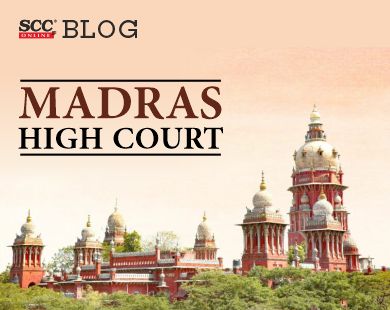Madras High Court: In a civil revision petition filed to direct the Principal Subordinate Judge to dispose of the suit within the stipulated period, S.M. Subramaniam, J. said that adjournment on flimsy grounds would cause injustice to the parties. Thus, the Courts, while granting adjournments are expected to borne in mind that such adjournments are to be granted by recording reasons and on genuine grounds but not otherwise. Further, it held that the High Court cannot issue directions for speedy disposal unless there is a justification or acceptable reason for issuing any such directions.
The grievance of the petitioner is that the suit instituted by him for specific performance has been pending for the past 7 years and the longevity of the suit increased on account of unnecessary adjournments granted by the Court on flimsy grounds.
The Court said that the High Court is not expected to issue any such direction for speedy disposal of cases in a routine manner. Several such cases are pending before the District Judiciary. All such cases are also to be disposed of consistently and in a uniform manner without causing any discrimination amongst the litigants. Several litigants are longing to get justice from various Courts and therefore, merely issuing a direction in one case, High Court cannot discriminate the litigants and it is for the Court concerned to regulate its own proceedings in respect of the disposal of the cases on its board.
Further, it said that no doubt priority is to be given in respect of the senior citizen cases and for the cases where there is an imminent urgency, which must be established by the parties concerned. In respect of all other cases, the Court concerned must dispose of the same consistently by avoiding unnecessary adjournments on flimsy grounds. Adjournments are exceptions. The rule is to conduct the cases, whenever it is posted for hearing.
It further said that the parties cannot be allowed to achieve their ill-motives by abusing the process of Court or by taking undue advantage of the procedures contemplated under the Code of Civil Procedure, 1908 or under the Statutes or Rules concerned.
The Court said that in the present case, the petitioner pleads that the suit is pending for the past about 7 years, but mere length of time alone is not the criteria. The number of cases pending in a particular Court is to be taken into consideration by the High Court, as the Court concerned is the best person to regulate its own proceedings and ensure that the cases are disposed of in a consistent manner to avoid unnecessary filing of such civil revision petition before the High Court seeking speedy disposal of the cases.
It also said that the High Court cannot issue directions to the District Judiciary for speedy disposal of cases in a routine manner, as frequent directions would not provide a practical solution and would further cause unnecessary pressure on the District Judiciary.
The Court said that the trust on the Judicial System is Hallmark and any form of favouritism, nepotism or otherwise even in the matter of hearing of cases selectively, will have larger repercussions on the system. No doubt certain cases are to be disposed of urgently, if there is a public interest involved or the litigants can establish genuine urgency for early disposal of the cases. Such cases alone are to be given priority.
[S. Baby v. S. Sakkubai Ammal, 2023 SCC OnLine Mad 674, decided on 06-02-2023]
Order by: Justice S.M. Subramaniam.
Advocates who appeared in this case :
For Petitioner: Advocate N. Suresh;
*Apoorva Goel, Editorial Assistant has reported this brief.






